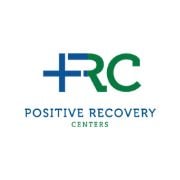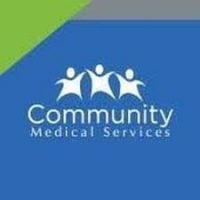Bridgeway Sober Living
Drug Rehab Center in Austin, Texas
Bridgeway Sober Living in Austin, TX offers comprehensive addiction treatment services, such as detoxification and dual-diagnosis care, as well as residential and sober living/half-way programs, intervention and aftercare support to help individuals achieve long term recovery.
About Bridgeway Sober Living in Texas
Bridgeway Sober Living is an Addiction Treatment Facility located in Austin, Texas, that specializes in providing comprehensive care for individuals struggling with drug addiction, alcoholism, dual diagnosis, eating disorders, opioid addiction, and substance abuse. They offer a range of treatment services to cater to the unique needs of each individual, including detox, dual-diagnosis treatment, inpatient programs, intensive outpatient programs, intervention services, residential programs, sober-living/half-way houses, and aftercare support. This facility is committed to helping individuals overcome their addiction and achieve long-term recovery by providing a safe and supportive environment where they can heal and rebuild their lives.
At Bridgeway Sober Living, they understand that addiction is a complex issue that often co-occurs with other mental health disorders. With their dual-diagnosis treatment program, they address both addiction and underlying mental health conditions simultaneously to provide a holistic approach to recovery. Their inpatient programs offer intensive and structured treatment, ensuring individuals receive comprehensive care in a residential setting. In addition to inpatient programs, they also offer intensive outpatient programs, allowing individuals to continue their treatment while residing in their own homes. Bridgeway Sober Living also provides intervention services to assist families in helping their loved ones seek treatment. After completing a program, clients have access to aftercare support, which includes ongoing counseling, relapse prevention strategies, and support groups. By offering a wide range of services, Bridgeway Sober Living is dedicated to helping individuals overcome addiction and lead fulfilling lives in recovery.
Genders
Ages
Modality
Additional
Conditions and Issues Treated
Rehabilitation, Medication, and Therapy – a combination of all three is most effective.
The most successful treatments for drug dependence or abuse have been those that include education and counseling and medication such as methadone or buprenorphine. The right drug abuse treatments need counseling, psychotherapy, and detoxification or medications to help with withdrawal symptoms.
Substance abuse can take many different forms, including the overuse or misuse of prescription drugs, unprescribed drugs, alcohol addiction, and drug addiction.
A combination of treatments is often needed to treat drug abuse issues effectively. In the case of drug abuse, there is no easy answer or one-size-fits-all cure.
While some drug addictions can be treated with counseling and support groups, many drug abusers also need medication to help them overcome their addiction. In other cases, drug abuse can lead to a medical problem and require medical treatment.
Treatment for drug addiction typically combines counseling and psychotherapy with medication and behavioral therapies. In some rare cases, hospitalization may also be required. All different treatments combined are the best way to help someone addicted to drugs, alcohol, or other substances.
Treatment for opioid addiction is best made with the help of medical professionals who are experienced in dealing with these types of drugs. This treatment can involve medications, exercise, behavioral therapy, and counseling sessions. It is important to note that the effectiveness of treatments for opioid addiction vary, so it is vital to research which treatment options are suitable for each individual.
Many people who struggle with opioid addiction need to attend specific programs like methadone , Suboxone or Vivitrol clinics.
These types of programs will provide the patient with legal, prescription medications that can help them overcome their cravings for illegal opioids like heroin or fentanyl . If the patient has a chronic condition like Hepatitis C, they must undergo treatment before they can begin taking these medications.
Individuals who are addicted to drugs and/or alcohol often have one or more co-occurring mental health disorders. Addressing both the addiction and the mental health problems at facilities like Bridgeway Sober Living can be very beneficial for these individuals.
Common mental health conditions that often co-occur with addiction include:
- Anxiety Disorders – People with drug and alcohol problems often suffer from anxiety disorders such as panic disorder, obsessive-compulsive disorder, social anxiety disorder, and generalized anxiety disorder.
- Depression – One of the most common mental illnesses co-occurring with addiction is major depressive disorder.
- Attention-deficit hyperactivity disorder (ADHD) – Many people with drug and alcohol problems also suffer from ADHD.
- Bipolar Disorder – People with bipolar disorder are more likely to suffer from drug and alcohol problems than the general population, and vice versa.
Levels of Care Offered
This center offers a variety of custom treatment tailored to individual recovery. Currently available are Aftercare Support, Detox, Dual-Diagnosis, Inpatient, Intensive Outpatient, Intervention, Residential, Sober-Living / Half-Way, with additional therapies available as listed below.
Detox is the stage of recovery where the drugs or alcohol are entirely removed from your body. There are two different ways to detox, with medications and without. For many drugs and alcohol, the acute phase of detox can be completed in a number of days.
Inpatient recovery offers individual therapy, groups, and family therapy. The length of inpatient addiction treatment depends on the addict and their addiction. Inpatient rehab is a costly drug treatment, costing anywhere from $30k- to $60k. However, insurance often offers help in covering these costs.
An intensive outpatient treatment program, or IOP, is set up for those struggling with an addiction to begin the recovery process. However, the patient will not live at the facility during treatment.
IOP involves patients coming in and out of a medical office building regularly to receive therapy and other services while continuing their life outside of these visits.
IOP is a step up from drug detoxification or alcohol detox. However, it’s still considered a phase of recovery rather than the ultimate goal. There are many rehabs and treatment facilities available to patients in need of IOP.
Sober living homes are transitional houses for recovering addicts who need more structure than they would receive in an aftercare program. Specific rules and regulations are enforced in these homes, which are beneficial for people who need a greater degree of structure than other types of treatment.
Sober living home options include:
- Live-in managers – might be beneficial to people who do not have a support system in place at home, or who experience high levels of stress between work and home life.
- House managers – House managers are beneficial for people who do not have a strong social network to rely on, or who are concerned about relapse in their daily lives.
- House parents – House parents are beneficial to people who reside in areas without a strong aftercare program for support.
Residential treatment programs are those that offer housing and meals in addition to substance abuse treatment. Rehab facilities that offer residential treatment allow patients to focus solely on recovery, in an environment totally separate from their lives. Some rehab centers specialize in short-term residential treatment (a few days to a week or two), while others solely provide treatment on a long-term basis (several weeks to months). Some offer both, and tailor treatment to the patient’s individual requirements.
Intervention services can be beneficial for people who have not been able to overcome drug and alcohol addiction on their own. It is recommended for individuals whose addiction has led to dangerous or life-threatening circumstances.
Intervention services are beneficial for:
- People who have relapsed after completing other forms of addiction treatment.
- People with drug addictions that have led to dangerous health conditions, such as HIV.
- People who are at risk of losing their family, home, or job due to addiction.
- People who are having difficulty overcoming drug and alcohol addiction on their own.
- An intervention can be conducted by professionals, or by loved ones of an addict. If the person being intervened on agrees to enter addiction treatment after the intervention, the next step would be to choose a treatment program.
If they do not agree to enter addiction treatment after the intervention, loved ones may choose to go back to the drawing board and try another form of treatment. They may also choose to not receive any further treatment, but there are usually other factors in play that may make it difficult for people to stop using drugs or alcohol.
Aftercare support is vital to those who have completed a drug or alcohol treatment program. This support comes in individual and family counseling, treatment of psychiatric and other medical conditions, and medications to reduce cravings. It helps recovering addicts adjust to normal day-to-day activities and can last for a year or longer.
The majority of drug and alcohol addicts who receive aftercare treatment do not relapse. It is estimated that without aftercare, the relapse rate will be between 70 to 90 percent for most people. Aftercare is the final stage in addiction recovery, but it will also help maintain sobriety if relapse does occur.
Therapies & Programs
Individual therapy is ideal for addicts who want to focus on themselves. It can also be helpful for those whose withdrawal symptoms are exacerbated by the presence of other people.
Benefits of individual therapy are:
- Access to a personalized treatment plan that focuses on the individual needs of the addict
- More privacy during treatment sessions
- Better personal development through introspection
- Increased self-awareness regarding addictive tendencies in order to avoid relapse
- Greater potential for a long-term recovery plan
- Receiving professional advice and detox assistance from medical staff
This is when a group of people in various stages of recovery meet up and discuss their experiences, triggers, successes, failures, and even alternative therapies! Unlike support groups where everyone already knows each other, group therapy is conducted along side outpatient or inpatient treatment at Bridgeway Sober Living.
Dialectical Behavior Therapy (DBT) is used by drug treatment centers across the United States to help drug addicts become sober. DBT is a type of Cognitive Behavioral Therapy (CBT) that combines traditional behavioral treatments with elements from DBT, including dialectics, distress tolerance, and interlocking issues. Some of the negative behaviors associated with addiction, such as impulsivity and mood swings, are addressed in DBT, while others like craving and isolation are not. It is commonly used to treat Borderline Personality Disorder (BPD) along with substance abuse disorders.
The four DBT modules are mindfulness, interpersonal effectiveness, emotion regulation, and distress tolerance:
- Mindfulness helps recovering addicts learn to identify and experience their emotions while realizing that they are not permanent.
- Interpersonal Effectiveness includes assertiveness, asking for what you need, and saying no while improving communication skills.
- Distress Tolerance has recovering addicts learn how to tolerate distress at the moment and avoid resorting to substance abuse.
- Emotion Regulation is used to identify, express and change emotions.
CBT is a psychotherapy approach and method. [ws-nap-name] people to examine how their thoughts, including habitual harmful and inaccurate thinking, affect their actions. CBT is based on the idea that rigid, inflexible thinking leads to poor stress management, which leads to emotional distress.
Similarly, CBT helps people identify and change negative behaviors. It makes you question your perceptions and ask if they are realistic. CBT asks people to examine their behaviors and emotional responses and how they affect their lives. CBT aims to change people’s thinking and behavior to lead a more balanced and healthy life.
Moreover, CBT has been shown to reduce anxiety disorders, depression, and symptoms associated with harmful thoughts or actions.
Those struggling with addiction can benefit from learning certain life skills. It is not as simple as quitting drinking or taking drugs and thinking that the hard part is over. Being sober means living a whole new way of life. Many recovering addicts have found that they need to develop talents like time management, organization, communication skills, socialization skills, and self-esteem to make their life in sobriety work, Bridgeway Sober Living is here to help with that.
A 12-step program is a mutual support group in which members share their experiences with addiction. The goal of these programs is to provide support and encouragement throughout the recovery process.
12-step programs are beneficial for:
- Individuals who have already stopped drug/alcohol use
- Individuals who have already stopped drug/alcohol use, and are looking for a support system to maintain sobriety
- People who may be thinking about quitting their drug/alcohol use
- People who do not have access to other types of addiction treatment
Patient Experience
Experiential Therapy at Bridgeway Sober Living
Experiential Therapy is a type of therapy that involves activity to recreate situations that may have caused trauma or negative emotions. Experiential therapy at Bridgeway Sober Living in Austin, TX can involve acting, props, arts and crafts, animal care or other tools that may be effective. This therapy is done on an individual basis and can help revisit and heal from past traumas. Trust between the therapist and individual is important for success. Experiential therapy can help you more closely become you and move through life positively and authentically.
Payment Options Accepted
For specific insurance or payment methods please contact us.
Is your insurance accepted?
Ask an expert, call (888) 674-0062
Additional Details
Specifics, location, and helpful extra information.
Austin, Texas 78704 Phone Number(512) 598-4875 Meta DetailsUpdated November 25, 2023
Staff Verified
Bridgeway Sober Living Patient Reviews
There are no reviews yet. Be the first one to write one.
Austin, Texas Addiction Information
Texas is one of the primary hubs for drug smuggling into the country. The border between Texas and Mexico is more than 1,000 miles long. More than 10 million residents use alcohol every year and more than 25% of those are minors. Alcohol and drug use has become so common in Texas that almost 15% of all deaths can be attributed to these substances.
Austin, Texas, has a drug addiction problem that is sadly serious. According to recent statistics, half of the state's overdose deaths occurred in the city of Austin. This means that, on average, there are about 2.5 drug overdose deaths in Austin each day. There are also many sober support groups in Austin to help you stay on track and focus on your recovery goals.
Treatment in Nearby Cities
- Orange, TX (241.2 mi.)
- Corsicana, TX (148.9 mi.)
- Buda, TX (12.5 mi.)
- Tulia, TX (377.1 mi.)
- Monahans, TX (318.1 mi.)
Centers near Bridgeway Sober Living
The facility name, logo and brand are the property and registered trademarks of Bridgeway Sober Living, and are being used for identification and informational purposes only. Use of these names, logos and brands shall not imply endorsement. RehabNow.org is not affiliated with or sponsored by Bridgeway Sober Living.









